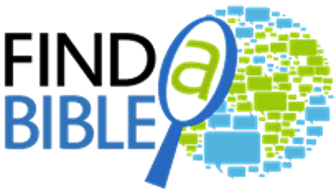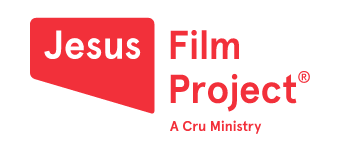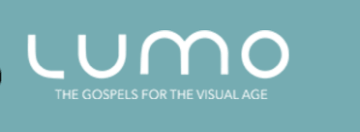How to Find Bibles and Scripture Resources
Updated September 2023
Scripture has been translated into almost 3,600 languages. For some people that means a complete Bible, for some a New Testament, for others Scripture portions and stories. In addition to written text versions (both print and digital) there are a number of related products including videos and audio recordings. New oral Bible translation techniques also mean that some languages bypass written translation. There are several online resources that can be used to find Scripture products in various languages. Whether you are looking for print or digital formats, audio versions or videos, if it is available it can likely be found through one of the resources below.
Scripture search tools
- A good place to start is with Find.Bible or ScriptureEarth.org. Both serve as search directories that provide links to outside sources (online or print-on-demand), as well as being sources themselves of online or downloadable Scriptures (text and audio/video). Both ScriptureEarth.org and Find.Bible can be searched by country as well as by language name, and include alternate names for many languages.

- ScriptureEarth.org, provides links to print, audio and video Scriptures available online. It also makes a large number of minority language Scriptures available in a range of formats such as pdf and modules for use in some Bible study software and links to individual apps. These have the advantage of being more easily copied from phone to phone in areas where access to the internet is difficult.
- Find-a-Bible (Find.Bible), sponsored by the Forum of Bible Agencies International and managed by the Digital Bible Society, lists major sources of Scripture in most of the languages in which Scripture is available digitally. (Formats include: downloadable pdf, links to online or print-on-demand versions, audio versions or video Scripture.)
Finding print copies of Scripture
Most Alliance Organizations do not sell Bibles, but they may have information about sources within their own countries. Printed Scriptures are usually available through Bible societies and online bookstores. Some translations are available via print-on-demand, and can be found by searching ScriptureEarth.org or Find.Bible.
More and more Scripture is available in digital form either by searching online or through apps. The digital versions will nearly always include details of the publisher and author or copyright holder and so enable you to search for print copies available for purchase in your region or that can be ordered online.
Online Scriptures
Most languages that have digital Scripture available can be found on one or more of these sites:
- Bible.is, a ministry of Faith Comes By Hearing, can be accessed online or via the app. Bible.is combines Scripture text with audio recordings in over 1700 languages. In addition, in partnership with LUMO, Bible.is provides video content of the four Gospels, so that readers can read, hear and see a visual dramatization of Matthew, Mark, Luke and John.
- YouVersion’s Bible app (also available at Bible.com) has over 3000 versions in over 2000 languages. Many versions can be downloaded from the app for offline use. The site and app also have over 60 interface languages.
Most languages where Scripture is available digitally are available on both of these sites but for now there are still some available on one and not the other.
- Global.bible is a collection of over 1100 individual Scripture sites from around the world supported by the American Bible Society.
Video and Deaf Scripture
- The JESUS Film (based on the Gospel of Luke) has been produced in more than 2000 languages. Most of these can be viewed online at JesusFilm.org or through one of the following apps: Jesus Film Project app, YouVersion’s Bible app (or at Bible.com), or Faith Comes By Hearing's Bible.is app. The Jesus Film Project also produces a growing number of other video products, which can be viewed online as well at JesusFilm.org or on YouTube.
- LUMO provides video dramatizations of Matthew, Mark, Luke and John with narration of the full Gospel text in over 1,350 languages and Bible versions. Faith Comes By Hearing is dubbing these into hundreds of languages available via Bible.is with many also available on YouVersion’s Bible app (or at Bible.com) and YouTube.
- Deaf.Bible, the sign language Scripture app of Deaf Bible Society, provides access to sign language Scriptures in 50 sign languages so far. Download the app from Deaf Bible Society’s website or view online.
Additional resources
New-Neighbour-Bible.org is designed to help churches become aware of resources and languages spoken by refugees and other ‘new neighbours’. It has less languages than the bigger directories but gives more information about those languages and links to a wider range of resources. It is currently available in English, French, German and Italian.
What to do if you can’t find Scripture online in a particular language
- Keep searching. It might be available under a different name or with a different spelling. You can also ask your local Bible society or Wycliffe Global Alliance organisation.
- It might not be online yet. In about 85% of the languages in which there is a full Bible or New Testament, those translations (or at least selected books) can be found online. The percentage is lower for languages in which only portions exist, but this is changing. Translation agencies and publishers are working hard to make more of the existing Scriptures available online. In some cases older Scriptures only exist in print and volunteers are needed to retype them and prepare them for release digitally.
- There are still many languages where translation is in progress or has yet to be started. You might be key in seeing that translation to completion, either through being part of the translation team or by partnering through prayer, finances or sharing the vision for translation with churches. You may also prepare the ground by connecting with others eagerly awaiting the translation. Contact your local Alliance organisation to learn how to become involved.
Thanks to Peter Brassington of SIL International for contributing to this article.
The latest
View all articles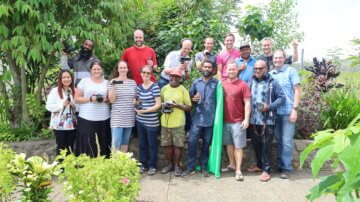
03/2024 Pacific: Papua New Guinea
Informing, teaching, inspiring: PNG workshop teaches video storytelling for language communities
PNG workshop teaches video storytelling for language communities
Read more
02/2024 Global
Looking ahead at 2024
As the year unfolds, we marvel at the work of God in our rapidly changing world. And, we look forward to a number of gatherings and conversations intended to draw us together.
Read more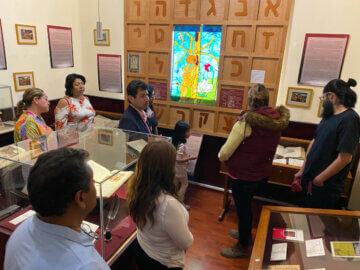
01/2024 Americas
Telling the Bible's Story
It may come as a surprise that a museum is among the Wycliffe Global Alliance organisations.
Read more
